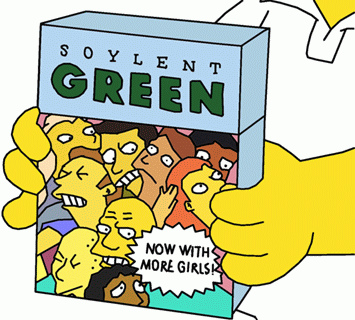
We have discussed Soylent before here on Klat. One man decided to reverse-engineer the human diet and created his own meal replacement shake, which he called "Soylent." It sounded crazy enough on the face of it, but the creator of Soylent received so much positive reaction from the public that he decided to start production on it on a mass scale.
One reporter tried Soylent for a month, and his results were surprisingly not bad. He experienced some minor health side effects (mainly because he wasn't drinking enough water at first), lost some weight (in a good way), and claims not to have missed food very much. Of course, his experience did make it clear to him that food has a strongly social component, a lesson that every person on a specialized diet has had to learn.
In general, when it comes to food, I'm fine with people putting whatever they want into their bodies. At least Soylent is healthier than the standard American diet, which apparently consists mainly of McDonald's Value Meals.
But here's my first big problem with the Soylent thing: he's reinventing the wheel. The medical industry is well aware of meal replacements, and they have pretty well perfected them. Patients who have facial issues, have undergone surgery, patients in comas, people with digestive disorders - there are a lot of people in the world who cannot eat solid foods. So don't front like you're the first person to think of this wacky invention, because you're not.
My second big problem is that many of those aforementioned people would give anything to be able to eat solid food. I have a relative with advanced Parkinson's who takes fluid nutrition through a gastric tube. He doesn't come to Thanksgiving, because it makes him sad, to not be able to eat.
Soylent, you're not a bad product, but you need to check your privilege.
Image courtesy Flickr/Sean94110

0 comments